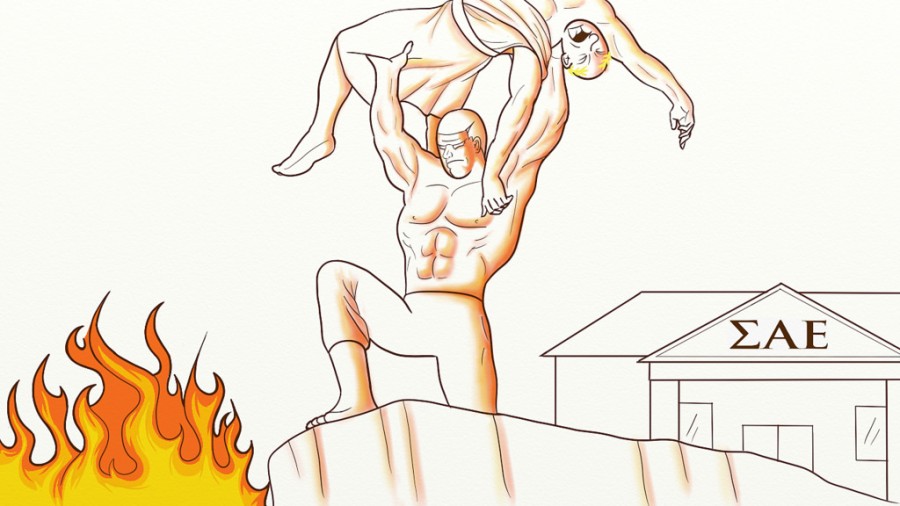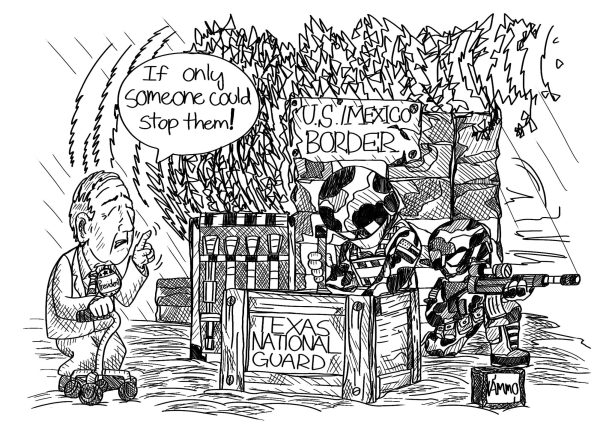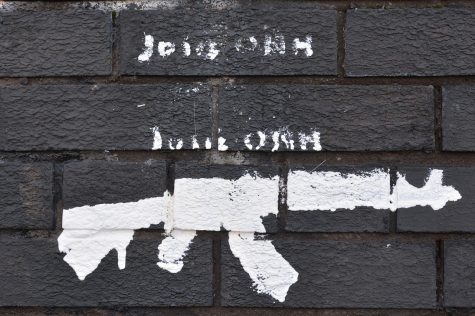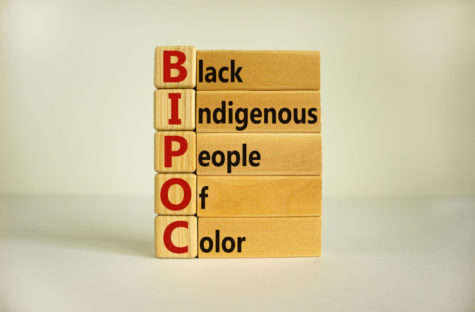Change needed to combat college hate crimes
March 17, 2015
University of Oklahoma president David Boren took swift action in disciplining the school’s Sigma Alpha Epsilon (SAE) chapter after a video surfaced online showing the group performing racist chants.
It took less than a week for UO to sever ties with the fraternity and expel the two students who lead the chant, which featured racial slurs and calls for lynching.
During his March 9 statement, Boren addressed the SAE members directly when he said, “Real Sooners (UO’s nickname) are not racist. Real Sooners are not bigots… Real Sooners love each other and take care of each other like family members.”
Whether or not these expulsions violated the First Amendment is debatable, as experts are pointing out. Such issues of free speech shouldn’t be taken lightly, and we should all make an effort to learn why, or even if, the SAE members were treated unfairly.
But we should also make an effort to consider the other issue at hand: the flourishing of hate crimes on college campuses.
It’s no secret these schools have become safe-ground for this behavior, one must only look at the 2014 White House study on sexual assault to confirm this. That report found “one in five women is sexually assaulted while in college.”
It’d be easy to say college campus Greek life is to blame. According to the new film “The Hunting Ground,” sexual assault and assault & battery are the two most common insurance claims against the fraternity industry, and both frats and sororities have long histories of discrimination.
But to reorganize these relatively small parts of college life is not enough.
School administrators must do more to ensure these crimes don’t happen. This means diversifying campuses: making sure public institutions like OU better reflect the minority population of the states they represent. It means not aligning with clubs like SAE: institutions that promote violence, overconsumption of alcohol and discrimination based on gender, race and/or income level. Most of all, it means worrying less about profits and more about fostering intelligent society members.
Millennials also need to improve. They are the ones who chanted, marched on black sororities with Confederate flags and committed sexual assault. This behavior shows they aren’t above hate crimes, no matter how much their well-crafted Facebook pages or righteous tweets may say otherwise.
Perhaps more than any generation before, Millennials are capable of feeling better than they actually are. It’s a dangerous way to think, one that often comes back to bite you on the rear: just ask the frat boys on the bus.
















































































